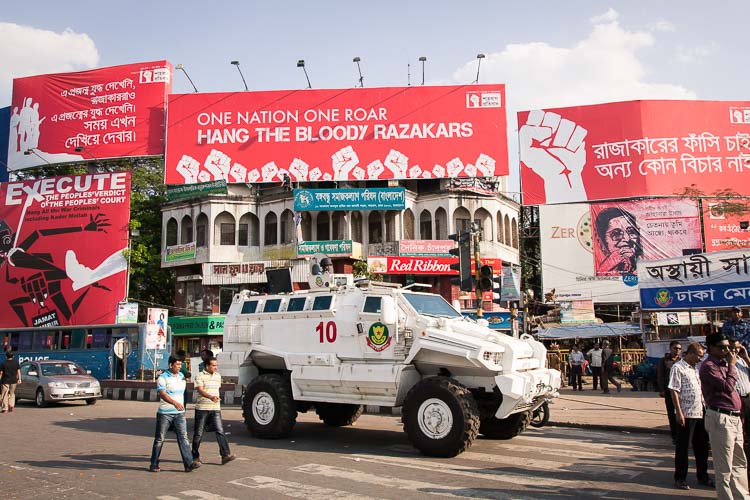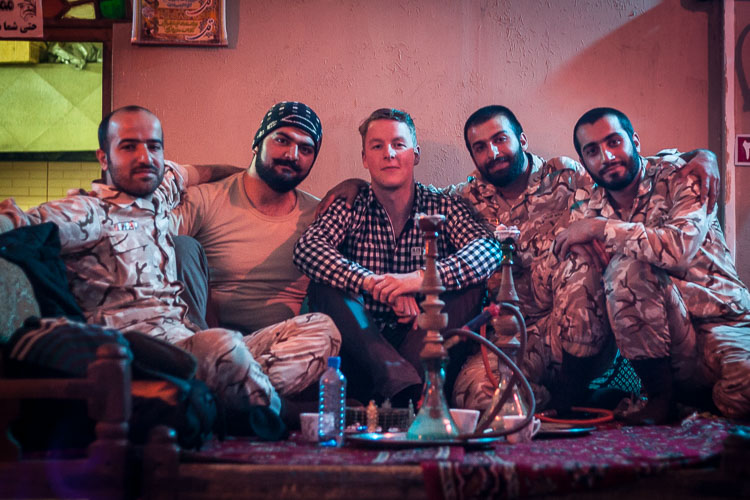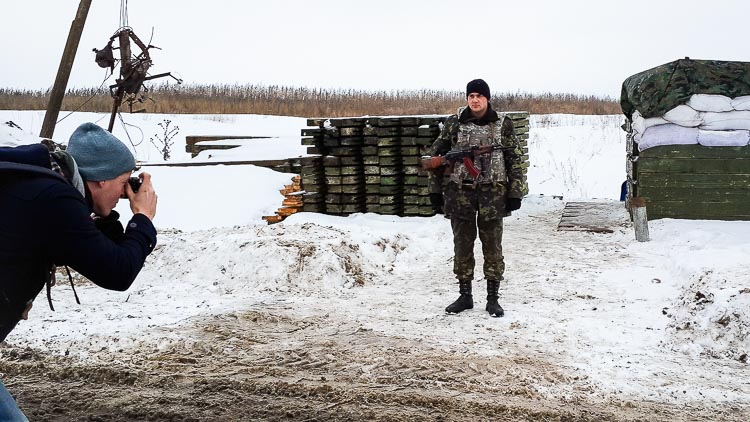
Sometimes it looks as if the whole world has become a conflict zone. From the chaos in the Middle East, to the recent attacks in Paris and Turkey. Travellers are much more at risk than you would think. Based on my own experiences, I am sharing the ways to prepare before heading out to the danger zone.
First let me show you an example of how conflicts have spread out over North Africa and the Middle East. Comparing 2010 to 2015 you can for example easily see the effect of the Arab Spring and revolution in Ukraine. Events like these have put their mark on many of the unsafe conditions we are seeing these days across the globe.

What’s important to realise though, is that countries with conflict are not necessarily unsafe travel destinations. Just look at Ukraine. Even though indeed there is a war in the east, it’s perfectly fine to travel to any place other than the front lines. Popular examples are the cities Lviv, Kyiv and Odessa. The same goes for Egypt. On top, much of the reported violence in the figures above were not aimed at foreign visitors.
READ MORE: A Soviet-Style Military Parade in the Streets of Kyiv, Ukraine
On the other hand, many countries that are generally known as safe countries are in fact the opposite. An example is Brazil but also the United States, where the number of gun murders per capita is nearly 30 times higher as in the UK.

Incidents can happen anywhere in the world, you can almost never be entirely safe. Let’s have a look at how to quickly assess the travel safety situation in any country. If you know where the danger zones are, you can stay away from them and still enjoy your time abroad in peace.
Assessing the situation
Staying up to date with all developments in the world is challenging. My tips to quickly make a safety assessment before you go:
By far the best way to receive news before the others do. Before I head out to a country, I search for the latest info using the country name and capital city hashtags. Also I follow a wide variety of journalists and conflict reporters around the world to keep up-to-date with developments in specific regions. Much of what they experience and share never makes the headlines.
My suggestion: When you’re going to a specific country, start following the most active twitter accounts of the main local media outlets.
Liveuamap
The go-to source for the latest info about conflicts, protest, disasters and war-related stories from around the world. Liveuamap was founded in 2014 by a team of software developers and journalists to tell the world about the Ukrainian revolution. Now it covers more than 30 different regions and topics and is used by war- and conflict reporters around the world. Through Liveuamap I found out that there is a small pocket of ISIS/Al-Nusra held territory in Lebanon, which taught me not to go anywhere near the city Arsal.
My suggestion: Follow the accounts of Liveuamap on Twitter to never miss a thing.
Google News
Not all media use Twitter or other social media to promote their content. Therefore it makes sense to scan for news on Google. The best way to do this is to go to news.google.com and start with a search query using the country name.
My suggestion: Whenever a country can be referred to in different ways (Holland, The Netherlands, Nederland) investigate results for all terms.
Ask around
Find people who have recently been to the country/area before. Make sure to ask specific questions! Often travellers claim that a country is safe when it turns out they have only stayed inside the safety of a resort and the surrounding town. Backpacking on your own, using public transport to traverse an entire country in a budget-friendly way is a whole different game!
My suggestion: Join expat groups on Facebook or Couchsurfing communities and ask questions there. Sometimes locals are so proud of their country that they leave the negative bits outs. Always use multiple sources.
Check important dates
Every country has its important dates that can trigger large-scale protests. Especially revolution anniversaries and Labour Day are the ones to look out for. In Istanbul, 1 May is a day on which protesters commonly clash with riot police in the city centre. The use of tear gas and water cannons in these type of events is not uncommon.
My suggestion: Investigate what happened in previous years on the specific dates. See if there were any incidents and find out what places should be avoided that day.
Wikitravel
Wikitravel is a great source to check for important dates (see previous heading) and notice any hints on unsafe conditions for travellers. Be aware that it is not a complete source of info. An example is the page for Mozambique. The comments about corrupt police are totally accurate but there is no mentioning at all of the danger of driving its deadliest road under military escort (which I did, read my report here).
My suggestion: Save your wiki pages for offline reading on your device using the app Instapaper.
State issued travel warnings
Government warnings are not always the most realistic, but it never hurts to read them. The U.S. Department of State offers a tool to look up any country in the world and find conditions that may affect your safety and security. In particular I like the extensive “Crime” sections under the “Safety and Security” tab. They are highly accurate.
My suggestion: Be cautious interpreting any travel advice provided by governments, I rarely listen to it myself. I was told not to go to the east of Ukraine, which I still did without any problems. On top, the U.S. tells it citizens to “carefully consider the security implications of travel outside of the greater Cairo metropolitan area”, which I think is a ridiculous advice.

Do you have any additional tips to assess the safety situation in any country around the world? Feel free to add them in the comment section below!